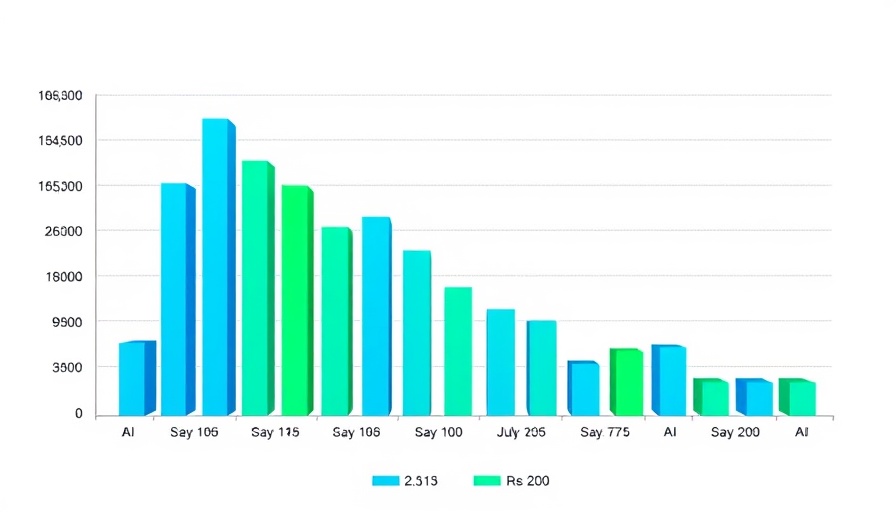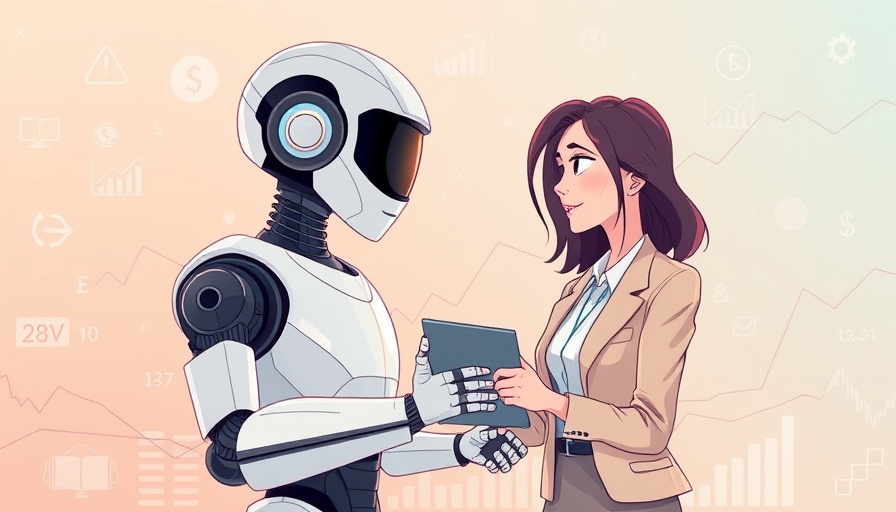
Unlocking AI Adoption in Businesses: The Essential Step
As businesses ramp up their digital transformation efforts, one crucial phase cannot be missed: aligning company objectives with artificial intelligence (AI) technologies. This foundational step serves as the springboard from which effective AI strategies can be developed and implemented across various departments, driving overall business success.
The Vital Connecting Dots Between AI and Business Goals
First and foremost, it's essential to understand that AI can be a powerful tool when its capabilities are aligned with specific business objectives. For example, if a company’s goal is to enhance customer engagement, integrating AI-driven chatbots and predictive analytics can automate customer interactions while providing personalized experiences. By connecting AI initiatives directly to measurable goals—such as increasing customer satisfaction or boosting conversion rates—businesses can foster a more attractive return on investment (ROI).
Navigating the Landscape of Marketing Automation Tools
Amid the myriad of marketing automation tools available today, selecting the right ones for AI implementation allows businesses to streamline their marketing processes. Tools like HubSpot, Salesforce, or Marketo come equipped with AI capabilities that can enhance everything from content marketing strategies to analytics and data reporting. Choosing these tools during the initial phase can lead to better integration and data flow across the organization.
Case Studies: Success Stories of AI Implementation
Numerous companies have successfully adopted AI technologies and seen marked improvements in their operations. One notable case is Starbucks, which employs AI to customize its marketing campaigns, predicting customer preferences based on previous orders. Such personalization strategies have led to increased customer loyalty, demonstrating how pivotal the integration of AI can be for a brand’s success.
Challenges and Misconceptions Surrounding AI in Digital Marketing
Despite the promising outcomes, many businesses face challenges while embracing AI. Common misconceptions include beliefs that AI will eradicate human jobs or are excessively costly. However, AI serves more as a complementary asset to human capacity, freeing marketing teams to concentrate on creative strategies while mundane tasks are automated. This understanding is crucial for teams evaluating AI adoption initiatives.
Future Trends: The Growing Importance of AI in Business
As the digital marketing landscape continues to evolve, AI will undoubtedly play an increasingly vital role. Future predictions suggest that companies focusing on AI adoption will enjoy competitive advantages, particularly in areas like SEO updates, voice commerce strategies, and data-driven marketing. Brands that don’t adapt will risk dwindling visibility and relevancy in the market.
Actionable Insights: Moving Forward with AI Adoption
To bridge the gap between AI technology and business outcomes, start by delineating clear objectives that AI can help fulfill. Engage teams across departments to gather insights on how AI can elevate their processes and customer interactions. Through workshops and collaborative sessions, your organization can develop a roadmap for effective integration, ensuring that AI tools help enhance efficiency and drive results.
In conclusion, as we stand on the cusp of a new marketing dawn, it is essential to prioritize aligning AI with business objectives and harnessing the vast potential of marketing automation tools. Embrace this step now to open the floodgates of innovation, efficiencies, and better customer engagement strategies that AI promises an enterprise to offer.
 Add Row
Add Row  Add
Add 




Write A Comment